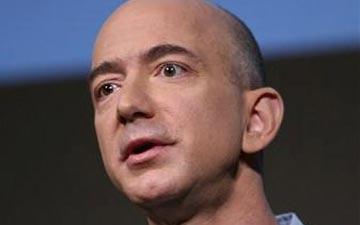
Bezos Is Clear about Amazon's Culture
Solid investigative reporting is bringing us inside looks at American corporate cultures, from Amazon to Yahoo. And some of it isn’t pretty.
As someone who studies ethical leadership, I’ve reached a surprising conclusion about the leadership of Jeff Bezos of Amazon.
Yes, stories and blog posts suggest blue-collar workers and some white-collar workers are not treated very well. If that is the case, eventually Bezos will have to deal with unions and higher-than-desired turnover. Some feel these stories indicate that Bezos is not leading from an ethical perspective, one that advances human welfare.
But Bezos is actually excelling at one thing I hold people in formal leadership roles accountable for. To lead ethically, one must leave no doubts about expectations and values, and I believe Bezos is clarifying the Amazon culture for the people who work there, and employees can take it or leave it.
Many of us, myself included, may find that the culture Amazon’s founding CEO is growing in his company’s petri dish to be unappealing. Having said that, it doesn’t render his leadership unethical.
Compliments of regulatory responses to everything from Enron to the Great Recession, lots of organizations now have “programs” to define and encourage ethical behavior, including codes of conduct and training. All good. But they do not a culture make.
Based on what I have read in the news and other online posts, Bezos has set a tone, captured ethical principles in writing, and encouraged certain practices. He has also rebutted recent negative news coverage, calling out the Amazon practices he thinks should be changed.
While Amazon’s leader has admitted some unethical practices actually happen — he calls them callous -- he’s moving past that quickly. By doing so, he is at least clarifying what, in his opinion, should fly or not fly at Amazon.
He does not believe, based on what he wrote, that people being treated without empathy during family crises is a sound management technique. He thinks it should stop, and he encourages people to bring such instances to the attention of Amazon’s HR department.
Sure, he sent the letter out over the weekend but by now we all know that Amazon has a round-the-clock culture, very much in line with the business it is in.
One of the most important and ethical actions someone with leadership responsibilities can do for employees is help them know what is expected and how things are done.
Some cultures have high integrity — what is written about the values and practices jives with the way things happen. There is less work for leaders to do around clarifying culture in those companies. Employees can quickly determine if their values align with the company they are part of and how the company’s business is accomplished. HR people call this “fit.”
Whatever one thinks of Amazon, Bezos is striving to hire people that are a good fit for the company and vice versa. The nature of the relationship between employees and organizations has changed. We now have layoffs, the evaporation of defined-benefit pensions and the rise of independent contractors with no benefits at all.
Each change shifts the power dynamic of the relationship. Loyalty is not the value it once was in the workplace, on either side of the equation and that’s a trade-off working people have to manage.
There are companies where value statements don’t jive with workplace practices. Most of us are not Jeff Bezos, but we might manage a defined group of people, and we can have an even greater impact than the CEO by helping employees see clearly what the culture actually is, and thus help them decide if the company is the right fit for them.
Ann Skeet is director of Leadership Ethics at the Markkula Center for Applied Ethics at Santa Clara University. This article originally appeared in Marketwatch.
